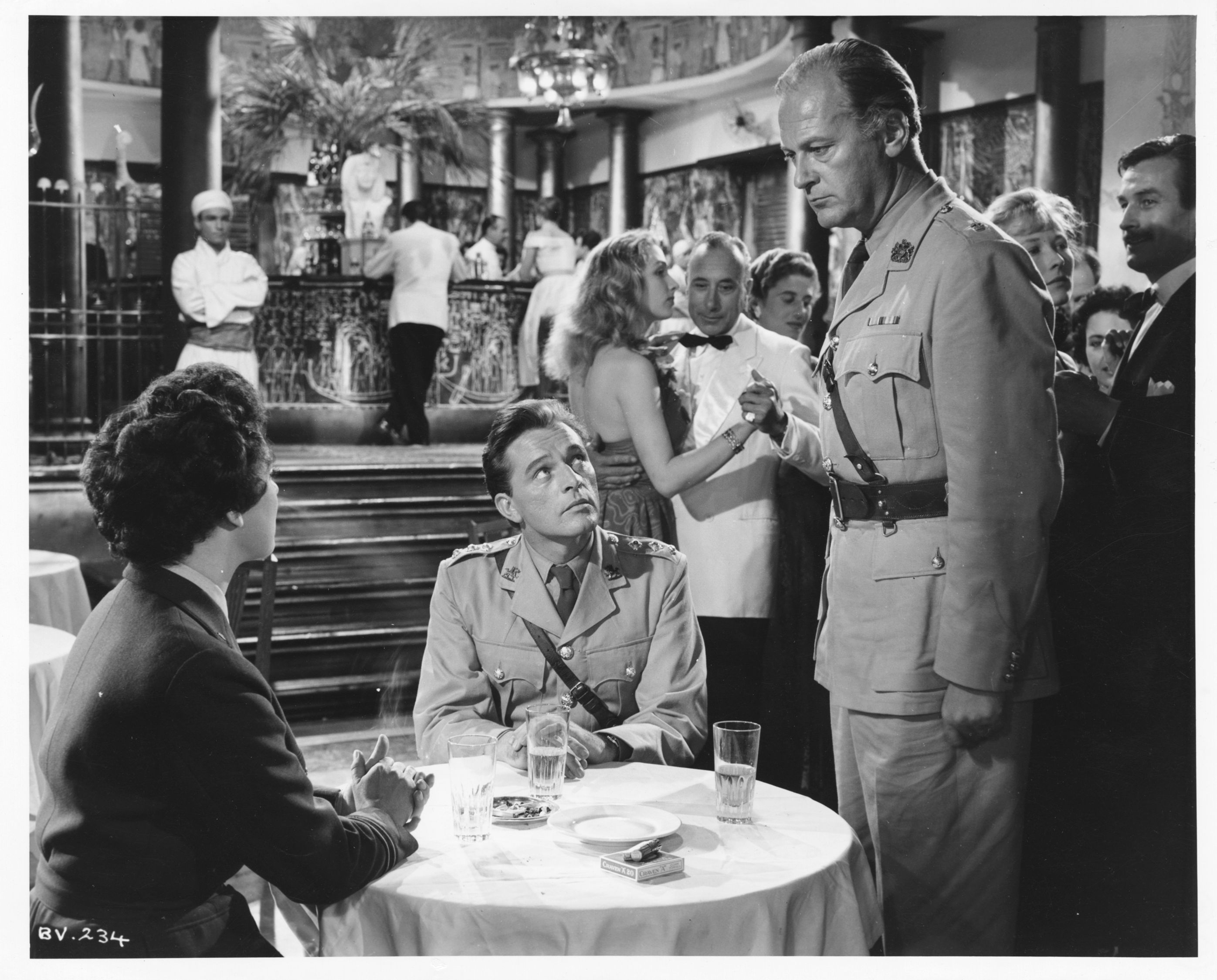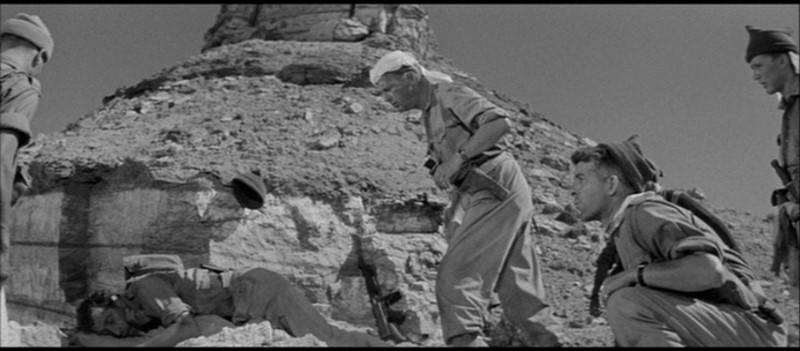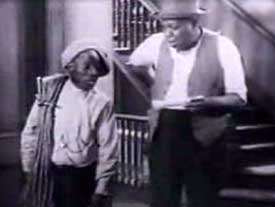This appeared in the June 18, 2004 issue of the Chicago Reader. —J.R.

Bitter Victory
**** (Masterpiece)
Directed by Nicholas Ray
Written by Rene Hardy, Ray, and Gavin Lambert
With Richard Burton, Curt Jurgens, Ruth Roman, Raymond Pellegrin, Anthony Bushell, Andrew Crawford, Nigel Green, and Christopher Lee.
Jane Brand: What can I say to him?
Captain James Leith: Tell him all the things that women have always said to the men before they go to the wars. Tell him he’s a hero. Tell him he’s a good man. Tell him you’ll be waiting for him when he comes back. Tell him he’ll be making history. —Bitter Victory

This week, as part of its series devoted to war films, the Gene Siskel Film Center is showing a restored version of Nicholas Ray’s little-known masterpiece Bitter Victory—a powerful, albeit flawed, black-and-white CinemaScope feature set mainly in Libya during World War II. This 1957 film offers a radical reflection on war, and its relevance to the current war in Iraq goes beyond the desert settings and references to antiquity.
Many films are regarded as antiwar, including ones that proceed from antithetical premises; in the 60s a popular revival house in Manhattan liked to run a double bill of Grand Illusion and Paths of Glory. Read more

“I must admit,” the Bear said in an icy voice, “that I have indeed always considered death a tragedy.”
“And you were wrong,” said Paul. “A railway accident is horrible for somebody who was on the train or who had a son there. But in news reports death means exactly the same thing as in the novels of Agatha Christie, who incidentally was the greatest magician of all time, because she knew how to turn murder into amusement, and not just one murder but dozens of murders, hundreds of murders, an assembly line of murders performed for our pleasure in the extermination camp of her novels. Auschwitz is forgotten, but from the crematorium of Agatha’s novels the smoke is forever rising into the sky, and only a very naive person could maintain that it is the smoke of tragedy.”
–Milan Kundera, Immortality (1990) [10/4/09] Read more
The following was written for the Monthly Film Bulletin — a publication of the British Film Institute, where I was serving at the time as assistant editor — and it follows most of the format of that magazine by following credits (abbreviated here) with first a one-paragraph synopsis and then a one-paragraph review. (For his resourceful photo research, thanks once again to Ehsan Khoshbakht.)–J.R.


Black and Tan
U.S.A., 1929
Director: Dudley Murphy
Dist—TCB. p.c—RKO. p. sup—Dick Currier. sc—Dudley Murphy. ph—Dal Clawson. ed—Russell G. Shields. a.d—Ernest Feglé. m/songs—“Black and Tan Fantasy” by James “Bubber” Miley, Duke Ellington, “The Duke Steps Out”, “Black Beauty”, “Cotton Club Stomp”, “Hot Feet”, “Same Train” by Duke Ellington, performed by—Duke Ellington and His Cotton Club Orchestra: Arthur Whetsol, Freddy Jenkins, Cootie Williams (trumpets), Barney Bigard (clarinet), Johnny Hodges (alto sax), Harry Carney (baritone sax), Joe Nanton (trombone), Fred Guy (banjo), Wellman Braud (bass), Sonny Greer (drums), Duke Ellington (piano), (on “Same Train”, “Black and Tan Fantasy”) The Hall Johnson Choir. sd. rec—Carl Dreher. with—Duke Ellington and His Cotton Club Orchestra, Fredi Washington, The Hall Johnson Choir. 683 ft. 19 min. (19 mm).

Duke Ellington rehearses his “Black and Tan Fantasy” for a club date in his flat with trumpet Arthur Whetsol until interrupted by two men from the piano company, sent to remove the instrument because he has fallen behind in the payments. Read more






